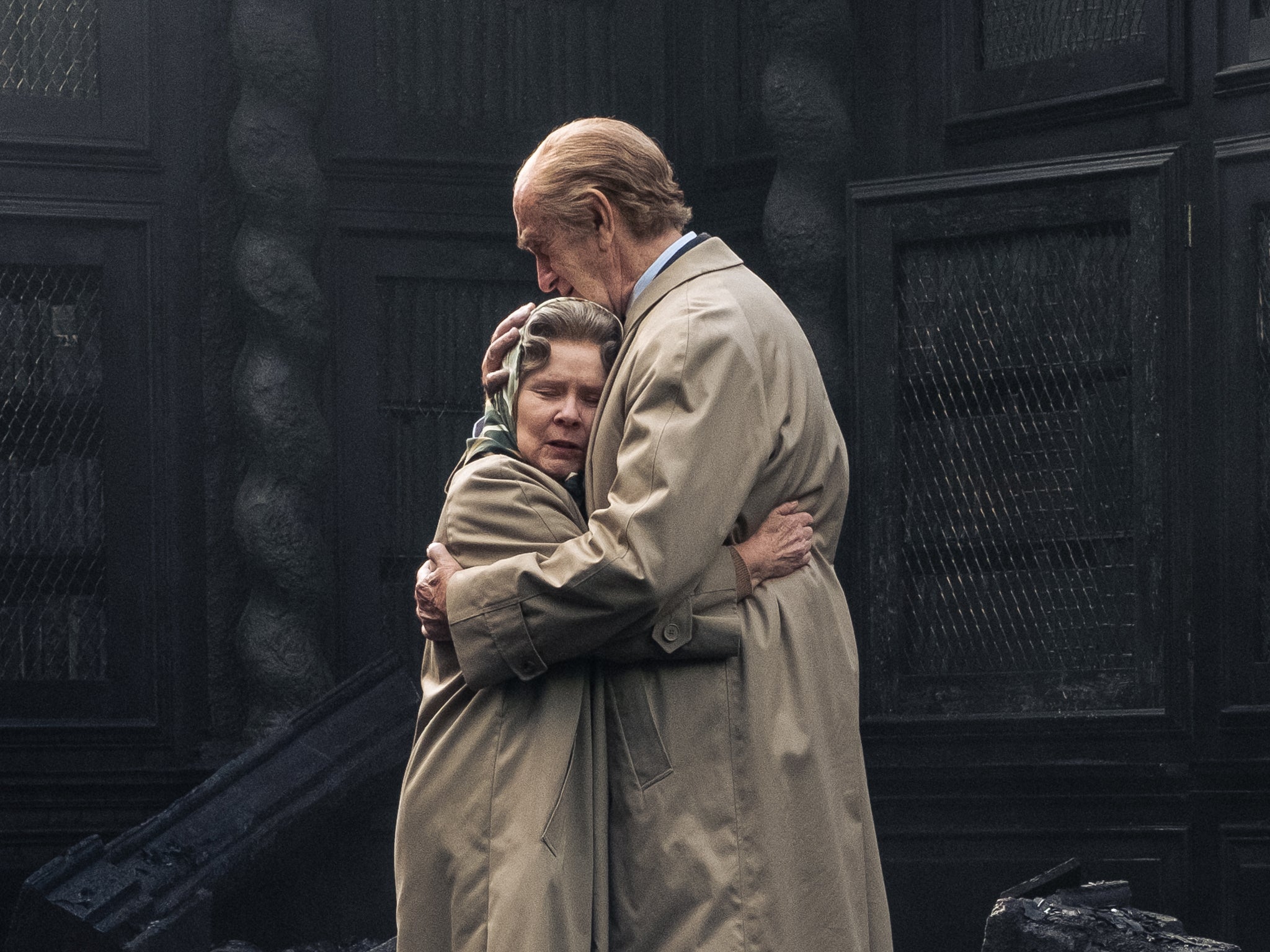The royals need to get over how they’re depicted in The Crown
Everyone from Dame Judi Dench to ‘unnamed friends of the Queen’ has lambasted the new season of the Netflix smash, clutching their pearls over its apparent evils. But, Jessie Thompson argues, they all seem to be missing the point, and the way the show humanises our most ancient institution


Your support helps us to tell the story
From reproductive rights to climate change to Big Tech, The Independent is on the ground when the story is developing. Whether it's investigating the financials of Elon Musk's pro-Trump PAC or producing our latest documentary, 'The A Word', which shines a light on the American women fighting for reproductive rights, we know how important it is to parse out the facts from the messaging.
At such a critical moment in US history, we need reporters on the ground. Your donation allows us to keep sending journalists to speak to both sides of the story.
The Independent is trusted by Americans across the entire political spectrum. And unlike many other quality news outlets, we choose not to lock Americans out of our reporting and analysis with paywalls. We believe quality journalism should be available to everyone, paid for by those who can afford it.
Your support makes all the difference.The Crown loves a metaphor. In the latest season, everyone is wondering what to do with the clapped-out royal yacht Britannia. It’s the Nineties, and the monarchy is looking a bit worn out, too. “It shouldn’t come as a surprise she’s falling apart, she’s a creature of another age… in many ways she’s obsolete,” says Prince Philip, definitely talking about a big, expensive boat. “Don’t say that!” the Queen flaps, definitely also talking about a boat. The show is filled with analogies so bold you could spot them from space. In another zinger, Diana’s Panorama interview is compared to Guy Fawkes’s gunpowder plot. And yet people still love to take this show very, very literally. Why, when it’s so clearly on the royals’ side?
The build-up to the fifth season of Peter Morgan’s royal soap opera, which is on Netflix from 9 November, has been particularly pearl-clutching. It arrives at a sensitive time, following the Queen’s death and King Charles’s transition to power, and it covers a particularly tumultuous era, characterised by bickering divorces and growing public disaffection. The show always attracts hysteria – Oliver Dowden suggested it should come with a “health warning” when he was culture secretary – but this time it’s more feverish than ever. A spokesperson for John Major, who is played by Jonny Lee Miller in the series, called it “damaging and malicious fiction”. Dame Judi Dench wrote to The Times to condemn it as an “inaccurate and hurtful account of history”. And a friend of the Queen described it as “vicious” and said it “would have destroyed” her.
Is there anything more passé than whinging about a show that, actually, offers pretty good PR for the royals? Take its treatment of tampongate. Yes, we’re going to be talking about that time the King wanted to be reborn as Camilla Parker Bowles’s tampon for the foreseeable, something that would definitely have seen us sent to the tower a few hundred years ago. There’s already outrage that this incident was included, with it being labelled “crass” and “in bad taste”. But, embarrassing as it may be, we categorically know that it happened. Here, it’s shown as part of a breathless love story between two besotted people. They are simply deeply horny for one another (are we sure I can’t go to the tower for this?) and also very funny together. I’ve always found it deeply endearing that, imagining his future tampon life, Charles chuckles, “just my luck!”
In fact, that entire episode is deeply sympathetic to Charles, depicting him as an intelligent, passionate moderniser who experienced horrendous invasions of privacy. An effusive end card points out how many young people have been helped by his charity, The Prince’s Trust. That’s not to say the series won’t be without controversy. Prince Philip’s friendship with Penelope Knatchbull, 32 years his junior, is a plot point. There’s a whole episode dedicated to the idea that the royal family basically destroys relationships. Charles is often shown thinking he could do a better job than his mum. There are made-up speeches. And we see a slightly insensitive, foreshadowing scene in which Diana loses control of her car. Largely though, The Crown tends to colour within the lines of what we already know, riffing on the ideas we have in our imaginations. In most of his work, such as The Queen and Patriots, his recent play about Russian oligarchs, Peter Morgan explores ideas of how systems of power impact individuals – and what greater system is there than Britain’s ancient institution?
In fact, when Prince Harry described The Crown as “fictional, but it’s loosely based on the truth”, he admitted it gave a “rough idea” of the pressures of being a royal. He added that he was “way more comfortable with The Crown than I am seeing stories written about my family or my wife”. For him, worse things have been reported in the news as fact. And there are far nastier depictions of the royals in culture, too. Spencer basically made the family look like characters from The League of Gentlemen. In Diana: The Musical, a crime against not just the royal family but all of humanity, Charles and Camilla were described respectively as “a third-rate Henry VIII” and “Godzilla”.
By comparison, The Crown is soft on the royals. Yes, some of it is made up. Some of it is unflattering. But it’s also about lots of things that, unbelievably, actually happened. “Sucking Sarah’s toes, Mummy!” Prince Andrew squeaks in one scene, while informing the Queen about a now infamous Fergie-related front page. Everyone knows the Nineties were a nightmare for the royals, but perhaps the kinder social values of our time will change how we view their experiences. If so, I suspect we’ll find much of what they endured more problematic than a made-up TV show. The Crown destroying the Queen? Are you kidding? A TV show? She went through worse.
‘The Crown’ season five streams on Netflix from 9 November



Join our commenting forum
Join thought-provoking conversations, follow other Independent readers and see their replies
Comments